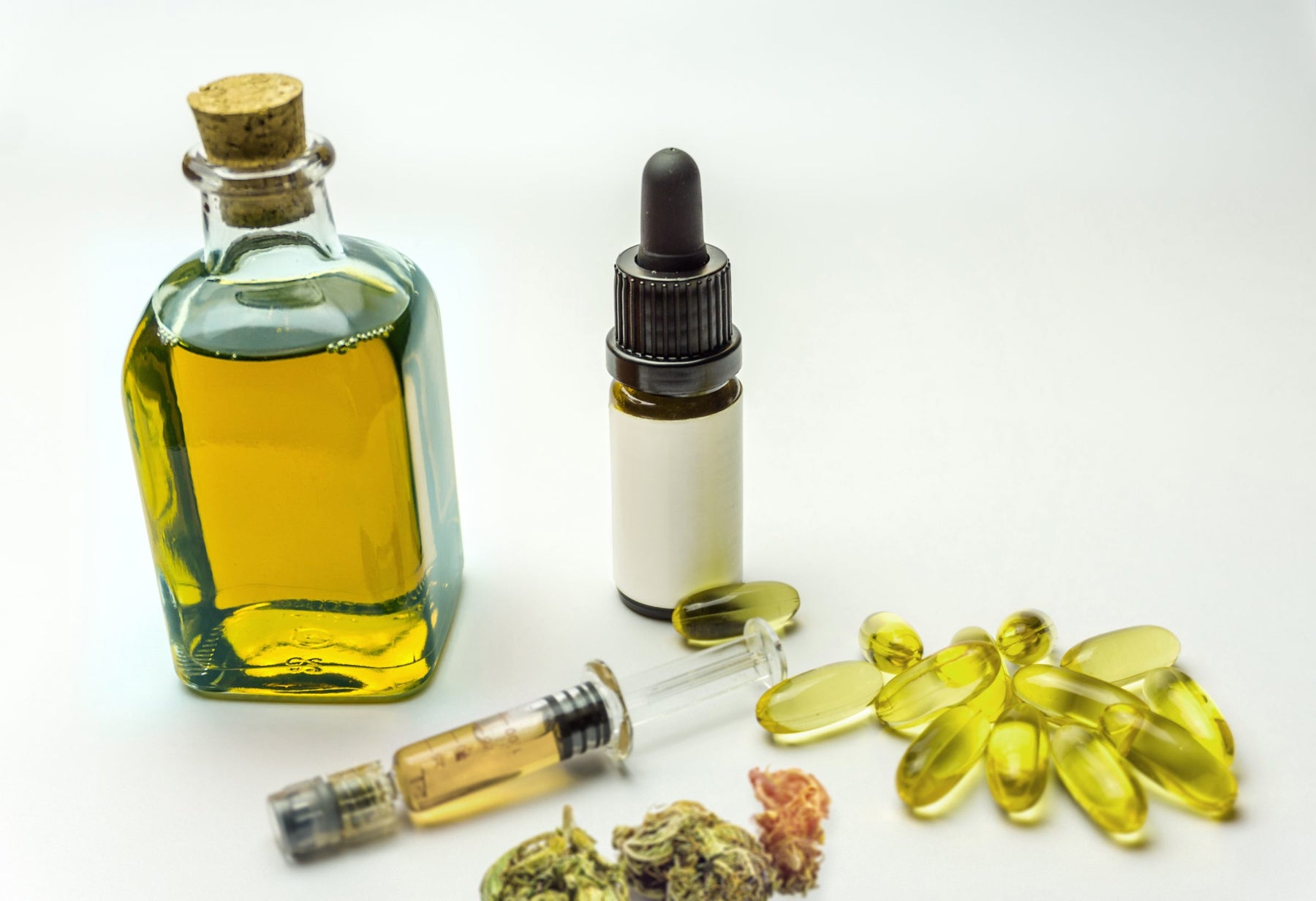News
CBD for Stress Relief: How Cannabidiol Can Help Manage Everyday Stressors
In today’s fast-paced world, stress has become an inevitable part of our daily lives. Whether it’s work deadlines, financial pressures, or personal responsibilities, stress can take a toll on our mental and physical well-being. While there are various strategies for managing stress, an emerging option that has gained attention is cannabidiol (CBD). CBD, a non-psychoactive compound derived from the cannabis plant, shows the potential in helping individuals find relief from stress and its negative effects. In this article, we’ll explore how CBD can be a valuable tool for stress management and promote a sense of calm and balance in our lives.
Understanding the Stress Response

To fully comprehend how CBD can assist in stress relief, it is vital to delve into the intricacies of the stress response. When we encounter stressors, whether they are physical, emotional, or psychological, our body initiates a complex chain of events. This process involves the release of stress hormones, such as cortisol, which triggers the “fight or flight” response. While this response can be beneficial in acute dangerous situations, experiencing chronic stress can lead to detrimental long-term health effects.
CBD operates by interacting with the body’s endocannabinoid system, a regulatory network that plays a pivotal role in managing stress and anxiety responses. The endocannabinoid system comprises receptors, enzymes, and endocannabinoids that are naturally produced within our bodies. When CBD is introduced, it can modulate this system, promoting a sense of balance and potentially alleviating stress-related symptoms.
Research suggests that CBD’s interaction with the endocannabinoid system influences various aspects of stress regulation. For instance, CBD may enhance the functioning of the receptors involved in regulating mood, anxiety, and stress levels. By modulating these receptors, CBD has the potential to mitigate the impact of stress on our mental and emotional well-being.
CBD‘s influence on the endocannabinoid system extends to its ability to regulate the release of neurotransmitters, such as serotonin, in the brain. Serotonin, often referred to as the “feel-good” neurotransmitter, is involved in regulating mood and promoting a sense of well-being. By increasing the availability of serotonin, CBD may help alleviate symptoms of anxiety and promote a calmer state of mind, making it easier to cope with stressors.
In addition to its effects on the endocannabinoid system, CBD also interacts with other signaling pathways and receptors in the brain that are implicated in stress and anxiety regulation. For example, CBD may interact with serotonin receptors, known as 5-HT1A receptors, which are involved in anxiety modulation. By influencing these receptors, CBD may contribute to a reduction in anxiety and a greater ability to manage stress effectively.
While the precise mechanisms by which CBD exerts its stress-relieving effects are still being explored, the current body of research suggests its potential as a valuable tool in stress management. However, it is important to note that CBD should not be considered a cure-all solution for stress, and individual responses may vary. It is advisable to consult with a healthcare professional or knowledgeable CBD practitioner to determine the appropriate CBD regimen and ensure it aligns with your specific needs and circumstances. By combining CBD with other stress reduction techniques, such as exercise, meditation, and healthy lifestyle choices, individuals can strive for a more balanced and harmonious state of well-being.
Promoting Relaxation and Calm

In today’s fast-paced world, finding moments of relaxation and calmness can be challenging. This is where CBD comes into play as a potential ally for stress relief. One of the primary reasons individuals turn to CBD for managing stress is its ability to promote relaxation and induce a sense of calm. CBD interacts with receptors in the brain and nervous system, influencing the activity of neurotransmitters. Research suggests that CBD may increase the availability of serotonin, a neurotransmitter known for its mood-regulating properties. Serotonin plays a vital role in promoting feelings of well-being, happiness, and relaxation. By enhancing serotonin levels, CBD may help reduce anxiety and induce a sense of calmness, making it easier to navigate stressful situations with greater ease and composure.
Studies have shown promising results regarding CBD’s effect on anxiety and stress. In a 2019 study published in The Permanente Journal, researchers found that CBD administration significantly reduced anxiety scores in a group of 72 adults within the first month of use. Another study published in Neurotherapeutics in 2015 indicated that CBD exhibited anxiolytic (anti-anxiety) effects in both animal models and humans.
The exact mechanisms through which CBD promotes relaxation and calmness are still being investigated. However, it is believed that CBD’s interaction with the endocannabinoid system, particularly the CB1 receptors in the brain, plays a significant role. By influencing neurotransmitter activity and modulating the endocannabinoid system, CBD may help regulate stress responses and promote a state of tranquility.
It’s important to note that the effects of CBD can vary from person to person, and finding the right dosage and product is key. Starting with a low dose and gradually increasing it allows individuals to gauge their response and find the optimal level for promoting relaxation and managing stress. Additionally, it’s essential to choose high-quality CBD products from reputable sources to ensure purity and potency.
While CBD shows promise in promoting relaxation and calmness, it’s important to approach its use for stress relief as part of a holistic approach. Incorporating healthy lifestyle habits such as regular exercise, sufficient sleep, and stress management techniques can further enhance the overall effectiveness of CBD in promoting a sense of calm and well-being.
CBD‘s potential to promote relaxation and induce a sense of calm has made it an increasingly popular choice for individuals seeking stress relief. By interacting with receptors in the brain and influencing neurotransmitter activity, particularly serotonin levels, CBD may help reduce anxiety and facilitate a state of tranquility. However, it’s important to consult with a healthcare professional or CBD specialist to determine the appropriate dosage and ensure safe usage. Incorporating CBD into a well-rounded approach to stress management can empower individuals to navigate life’s stressors with greater ease and find moments of serenity in their everyday lives.
Managing Physical Symptoms of Stress
When stress takes its toll on our bodies, it often manifests in physical symptoms that can further exacerbate our overall well-being. Muscle tension, headaches, and disrupted sleep are common physical manifestations of stress that can hinder our daily lives. Fortunately, CBD, with its analgesic and anti-inflammatory properties, may offer a potential solution for managing these stress-induced physical symptoms.
CBD has shown promise in reducing inflammation throughout the body. Inflammation is a common stress response, and when left unchecked, it can contribute to muscle tension and discomfort. By interacting with the body’s endocannabinoid system, CBD may help reduce the inflammatory response, promoting relief from muscle tension associated with stress.
CBD’s analgesic properties can contribute to the management of stress-induced headaches. Headaches often result from heightened muscle tension and constricted blood vessels. CBD’s potential to relax tense muscles may help alleviate the intensity and frequency of stress-related headaches. Additionally, by interacting with receptors in the brain, CBD may modulate pain perception, potentially providing further relief from headache symptoms.
Disrupted sleep is another significant physical symptom of stress that can further impact our well-being. CBD’s ability to promote relaxation and calmness may contribute to more restful sleep. By reducing anxiety and enhancing serotonin levels, CBD can help alleviate the mental and emotional turmoil that often disrupts sleep patterns during times of stress. With better quality sleep, the body can effectively recover and recharge, improving overall physical and mental resilience.
It’s important to note that while CBD shows promise in managing these stress-related physical symptoms, individual experiences may vary.
Finding the right CBD product and dosage that works for you is crucial. Starting with a low dose and gradually increasing it allows you to gauge the effects and determine the optimal amount for your needs. Consulting with a healthcare professional or CBD specialist can provide personalized guidance and ensure that CBD is integrated safely and effectively into your stress management routine.
CBD’s analgesic and anti-inflammatory properties make it a potential aid in managing the physical symptoms of stress. By reducing inflammation, relaxing tense muscles, and promoting a night of more restful sleep, CBD may help alleviate the discomfort and negative impacts of stress on the body. Incorporating CBD into a comprehensive stress management approach can contribute to overall well-being and provide a natural option for finding relief from stress-induced physical symptoms.
Choosing the Right CBD Product and Dosage

Choosing the right CBD product and dosage is a crucial aspect of using CBD for stress relief effectively. With the growing popularity of CBD, it’s essential to prioritize quality and reliability when selecting products. Look for reputable sources that provide third-party lab testing results to ensure the purity and potency of the CBD. Consider the different forms of CBD available, such as oils, capsules, gummies, and topicals, and choose the one that aligns with your preferences and lifestyle. For example, if you prefer a discreet and convenient option, capsules or gummies might be suitable. On the other hand, if you prefer targeted relief, topicals can be applied directly to the affected areas.
Finding the right dosage is equally important. It’s advisable to start with a low dose and gradually increase it until you find the optimal level that works for you. Every individual’s response to CBD may vary, so it’s crucial to listen to your body and observe how it affects you personally. Consulting with a healthcare professional or a CBD specialist can provide valuable guidance in determining the right dosage and product for your specific stress management needs. They can consider factors such as your body weight, metabolism, and any existing medical conditions to help you make an informed decision. Remember, finding the right CBD product and dosage is a personalized process, and taking the time to experiment and seek professional advice can lead to a more effective and enjoyable CBD experience.
Finding Balance and Calm in Everyday Life
While stress is an inevitable part of life, managing it effectively is essential for our overall well-being. CBD offers a potential natural solution for stress relief, promoting relaxation, reducing anxiety, and alleviating physical symptoms associated with stress. As with any supplement, it’s important to approach CBD use with caution and consult with a healthcare professional, especially if you have any underlying medical conditions or are taking other medications. By incorporating CBD into a holistic stress management plan, individuals can enhance their resilience and find greater balance and calm in their everyday lives.


